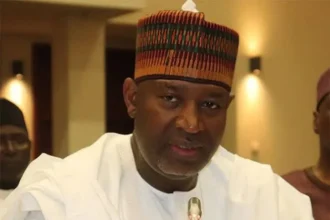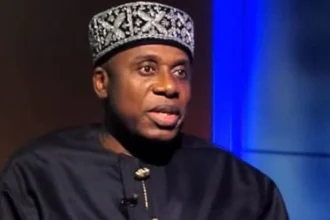...To get all news updates, Join our WhatsApp Group (Click Here)
Also Join our WhatsApp Channel (Click Here)
Chairman of Heirs Holdings, Mr. Tony Elumelu, yesterday, while receiving the ‘Person of the Year’ award at the Africa Investor CEO Institutional Investment Summit hosted alongside the UN General Assembly in New York, extolled stakeholders in the public and private sectors committed to improving access to power in Africa.
He first acknowledged the staff and management of Transcorp Power, the biggest producer of thermal energy in Nigeria, providing about 18% of national output: “In accepting this award, I want to dedicate it to Transcorp Power staff who remain committed to realizing our dream of improving access to electricity in Nigeria and making our vision of a well-lit, fully powered Nigeria come true.” Transcorp Power has supported U.S. President Obama’s Power Africa initiative with a $2.5billion commitment. He thanked the broader coalition of investors in the African power sector, as he urged other institutional investors to consider long-term opportunities on the continent. “I also dedicate this to all stakeholders working hard to improve access to power in Africa. I call on others to please join us in this journey to powering Africa out of poverty.”
As the economies of African regional powerhouses like Democratic Republic of Congo, Mozambique, Uganda, Nigeria and Angola struggle due to excessive exposure to commodities’ prices caused by limited diversification, Elumelu proffered a sustainable solution to reduce Africa’s historical external vulnerability.
“Africa has been faced with this same challenge, in my view, for far too long. I choose to look at the recent episodes of economic contraction across the continent as opportunities to diversify our economies and invest in building critical infrastructure, especially in power, to reduce our susceptibility to commodity shocks and break out of the perpetual boom-bust cycles.”
He emphasized that to ensure a different type of growth trajectory for Africa – one that does not rely exclusively on the export of primary commodities – there must be reliable, accessible, affordable power to support industrialization. “Industrialization must occur on a massive scale for our countries to be powered out of chronic dependency on commodities. We must power Africa’s next phase of development, by targeting and prioritizing growth of our manufacturing, industries and services. And power is the fulcrum that will make this happen,” he said.
Elumelu revealed that while there is an abundance of private capital available to be deployed to develop the African power sector, government must play its part in attracting these investments. He explained, “While there is huge private capital – local and global – seeking investment destinations, as we know, global private capital goes to where it is most welcome. Therefore, the challenge before African governments should be how to ensure they create the environment that will attract and retain these investments in our continent.” To the foreign investors gathered at the forum, he advised, “Though there are challenges in investing in Africa, these challenges can be overcome by investing in Africa through partnerships with qualified local partners who possess the right knowledge, requisite capital and technical know how.”
Speaking further, Elumelu urged private and public sector stakeholders to work together in what he describes as “Shared Purpose”. “It is critical for the public and private sectors to work together in “SHARED PURPOSE”, which is a key tenet of Africapitalism – the economic philosophy I espouse which calls for the private sector to play a key role in Africa’s social and economic development by investing in strategic sectors for both economic profit and social prosperity.”
Elumelu, who is also co-chair of the African Energy Leaders Group (AELG), a community of African energy leaders including Presidents and leading corporates, concluded his remarks by examining the role of power in creating opportunities for Africa’s jobless youth. “In the 21st century, the level of poverty we have in Africa and the dire youth unemployment, to a large extent, can be solved by improving access to power, and by extension other infrastructure deficiencies and deficits. Even though we are making progress, there is still a lot to be done. We need faster progress.”
You can get every of our news as soon as they drop on WhatsApp ...To get all news updates, Join our WhatsApp Group (Click Here)
Also Join our WhatsApp Channel (Click Here)









